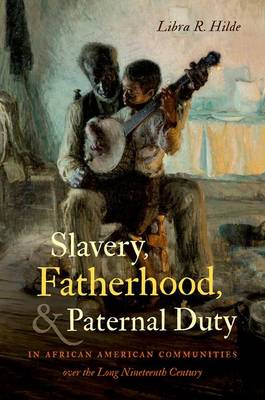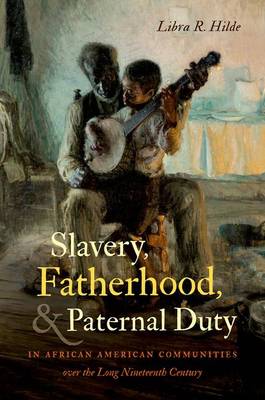
- Afhalen na 1 uur in een winkel met voorraad
- In januari gratis thuislevering in België
- Ruim aanbod met 7 miljoen producten
- Afhalen na 1 uur in een winkel met voorraad
- In januari gratis thuislevering in België
- Ruim aanbod met 7 miljoen producten
Slavery, Fatherhood, and Paternal Duty in African American Communities Over the Long Nineteenth Century
Libra R HildeOmschrijving
Analyzing published and archival oral histories of formerly enslaved African Americans, Libra R. Hilde explores the meanings of manhood and fatherhood during and after the era of slavery, demonstrating that black men and women articulated a surprisingly broad and consistent vision of paternal duty across more than a century. Complicating the tendency among historians to conflate masculinity within slavery with heroic resistance, Hilde emphasizes that, while some enslaved men openly rebelled, many chose subtle forms of resistance in the context of family and local community. She explains how a significant number of enslaved men served as caretakers to their children and shaped their lives and identities. From the standpoint of enslavers, this was particularly threatening -- a man who fed his children built up the master's property, but a man who fed them notions of autonomy put cracks in the edifice of slavery.
Fatherhood highlighted the agonizing contradictions of the condition of enslavement, and to be an involved father was to face intractable dilemmas, yet many men tried. By telling the story of the often quietly heroic efforts that enslaved men undertook to be fathers, Hilde reveals how formerly enslaved African Americans evaluated their fathers (including white fathers) and envisioned an honorable manhood.
Specificaties
Betrokkenen
- Auteur(s):
- Uitgeverij:
Inhoud
- Aantal bladzijden:
- 410
- Taal:
- Engels
- Reeks:
Eigenschappen
- Productcode (EAN):
- 9781469660677
- Verschijningsdatum:
- 19/10/2020
- Uitvoering:
- Paperback
- Formaat:
- Trade paperback (VS)
- Afmetingen:
- 156 mm x 234 mm
- Gewicht:
- 630 g

Alleen bij Standaard Boekhandel
Beoordelingen
We publiceren alleen reviews die voldoen aan de voorwaarden voor reviews. Bekijk onze voorwaarden voor reviews.









